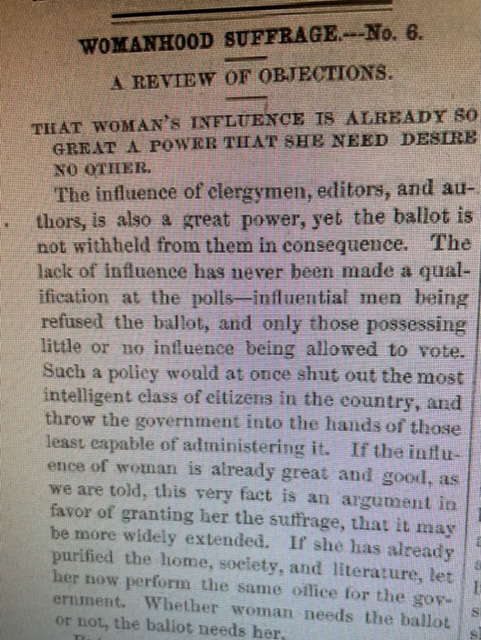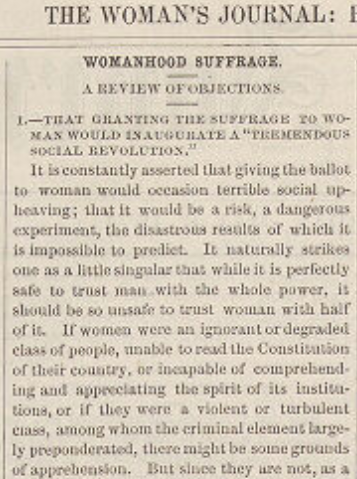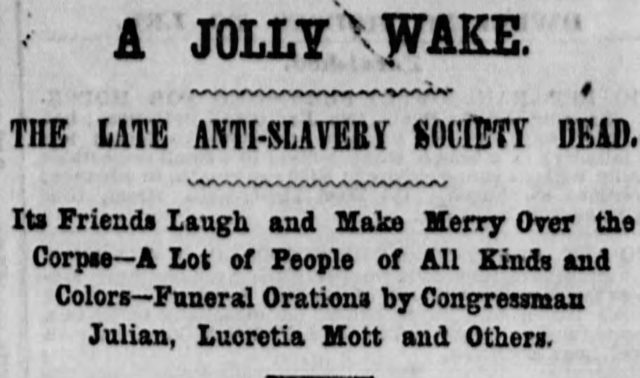“First principles were never more important.”
William Goodell, January 1866
During Black History Month, it is worthwhile examining some of the writings of Lavinia Goodell’s father, Reverend William Goodell, a lifelong abolitionist.

During the Civil War years, William Goodell was the publisher of The Principia, an anti-slavery newspaper. Lavinia assisted in all aspects of the publication process from writing articles to preparing the papers for mailing to serving as editor-in-chief in her father’s absence. By 1865, Lavinia had taken a job as a teacher in Brooklyn, and her parents had retired to Connecticut. The Principia continued publication until 1866, with J.W. Alden at the helm.
The period from 1865 to 1867 was known as Reconstruction, the goal of which was to reunite the North and South and ensure the rights of freed slaves. In January of 1866, William Goodell wrote a lengthy letter to J.W. Alden, which was published in the February 8, 1866 issue of The Principia. In it, Goodell expressed his frustration with Reconstruction and lamented that many northerners seemed to be forgetting why the war had been fought. He wrote:
First principles were never more important, more needed, or less heeded than at present. “Let bygones be bygones,” say politicians, looking over both shoulders for votes, and richly deserving none from either. “Let bygones be bygones,” re-echo rebel sympathizers at the North, who are watching the weather vanes and holding their ears close to the ground to catch the first undulations of sound from every quarter. “Let bygones be bygones,” say editors, who, like mariners, trim their sails to the breeze, and prefer to navigate smooth waters. “Let bygones be bygones,” respond the unrepentant rebel slaveholders, in full chorus, with Presidential pardons in one hand, and whips in the other.
Continue reading →














